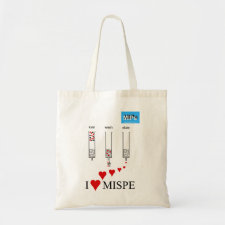
Authors: Tan L, Tang SS, He R, Liang Y, Xing D, Chen JW, Tang YW
Article Title: Molecularly Imprinted Polymer Nanogels Targeting C-Terminal of Angiotensin II for Lowering Blood Pressure of Rats by Oral Perfusion.
Publication date: 2017
Journal: Journal of Biomedical Nanotechnology
Volume: 13
Issue: (9)
Page numbers: 1035-1044.
DOI: 10.1166/jbn.2017.2413
Alternative URL: http://www.ingentaconnect.com/content/asp/jbn/2017/00000013/00000009/art00002
Abstract: Over-expression of angiotensin II (Ang II) in bodies causes vasoconstriction and a subsequent increase in blood pressure. The present work proposes a novel technique of using an artificial receptor to reduce circulation of the excess Ang II in rats' bodies and subsequently lowering blood pressure of the rats by oral perfusion. A molecularly imprinted polymer nanogels (MIPNGs) receptor was prepared with the C-terminal pentapeptide of Ang II as the template in aqueous media, which served as a selective recognition element for Ang II. The resulting MIPNGs had good monodispersity, as measured by dynamic light scattering and further confirmed by transmission electron microscopy. The saturated adsorption capacity for angiotensin II of the MIPNGs reached 149.8 mg/g, and the yielding imprinting factor was 4.6. The MIPNGs displayed negligible toxicity and excellent cytocompatibility. The spontaneously hypertensive rats absorbed MIPNGs via oral perfusion at gradient producing a significant reduction in systolic blood pressure. Coupled with their biocompatibility and nontoxic characteristics, the MIPNGs offer the potential for neutralizing a wide range of biomacromolecules in vivo.
Template and target information: protein, peptide, epitope, angiotensin II, Ang II
Author keywords: angiotensin II, Nanogels, molecular recognition, molecularly imprinted polymer, hypertension



Join the Society for Molecular Imprinting

New items RSS feed
Sign-up for e-mail updates:
Choose between receiving an occasional newsletter or more frequent e-mail alerts.
Click here to go to the sign-up page.
Is your name elemental or peptidic? Enter your name and find out by clicking either of the buttons below!
Other products you may like:
 MIPdatabase
MIPdatabase









